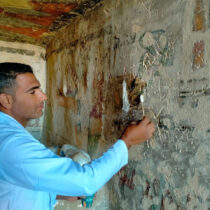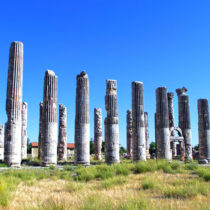Three novels of the twelfth-century Byzantium survive complete (Makrembolites’ Hysmine and Hysminias, Prodromos’ Rhodanthe and Dosikles and Eugenianos Drosilia and Charikles). These “revival” novels appropriated the subject matter (romance and adventure) of the ancient Greek novels of about the second century ad This paper considers the use of dreams in “revival” novels in the light of the earlier novels’ use within a framework of Bakhtin’s notion of “alien speech”, i.e. discourse shaped by the perspectives, systems of concepts and values, and language of another.
In the ancient novels, dreams presented a foreknowledge or understanding of the will or working of non-human forces; however, in all instances, the Byzantine novels’ uses and meanings of the dream subtly clash with the ancient novels’ uses and meanings in order to make the phenomenon subordinate either to human action, reason, or initiative, or to subtly-incorporated Aristotelian explanation.
The writers of the genres revival were experimenting in a potentially dangerous area: the ancient novel world involved paganism, which had to be rejected or denied. As one means of remaining orthodox, or non-heretical, they subjected their works to compromising changes. Where novel convention called for the intrusion of pagan gods, the Byzantine novelists subtly distorted it, inverted it, or rejected it outright. In turn, within the narrow context of the dream, they turned to their Hellenic heritage and appropriated the voice of Aristotle to deny the reality of supernatural revelation and thus render it and what it depicted as an illusion. But this in itself may even have been moving towards heresy. Thus, in reviving the novel under twelfth-century conditions, these writers attempted to render their activity safe through the use of “alien speech”: if charges of heresy had been brought against them, their defences were ready-made.


